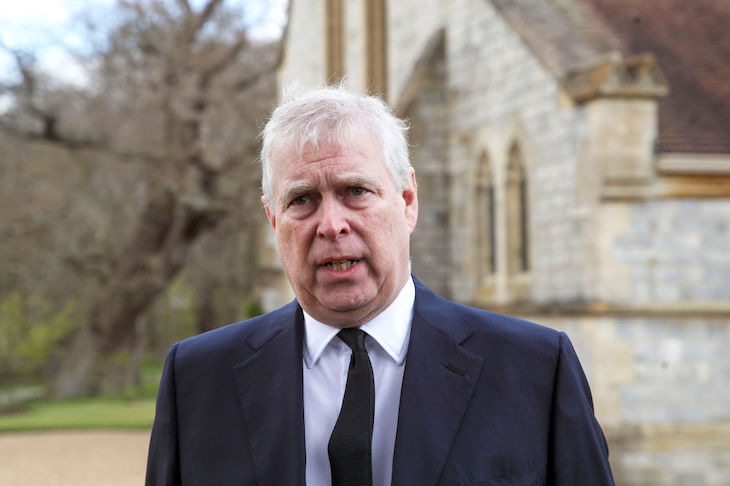As the fallout continues from the latest China spy scandal, it is hard not to conclude that Labour’s policy on Beijing – as far as one can be identified – adds up to appeasement in the vain hope of some economic crumbs from the Emperor’s table. It will certainly be seen by the Chinese Communist Party (CCP) as a green light for stepping up what Ken McCallum, the head of MI5, has described as ‘a sustained campaign on a pretty epic scale’.
‘National security is the most important issue of our times,’ said Keir Starmer at the time of 80th anniversary of the D-Day landings, a few weeks before the general election. And yet in office he remains reluctant to confront what by most measures – and certainly in the view of our increasingly frustrated intelligence services – is the biggest threat to Britain.
That China deserves to be included in the enhanced security risk tier is self-evident
The Foreign Influence Registration Scheme (FIRS) is a key case in point. It was introduced by the last government as part of a major revamp of national security legislation. Although never explicit, it was clearly understood to be aimed at blunting the activities of Beijing’s sinister United Front Works Department (UFWD), for which Chinese ‘spy’ Yang Tengbo was allegedly working. The UFWD works closely with China’s main spy agency, the Ministry of State Security, and although it does engage in espionage, its main activities are interference, infiltration and subversion – covertly winning individuals and organisations over to the cause of the CCP.
The FIRS was seen by the security services as vital to catching those clandestine activities that fall below full-on espionage. It would require those working for a foreign government to declare their lobbying or face prosecution and was based on a similar scheme introduced in Australia in response to CCP interference there. Crucially, it contained an ‘enhanced tier’ of countries deemed highest risk to the UK, which would require heightened scrutiny.
That China deserves to be on this tier is self-evident, but governments – Tory and now Labour – have faced fierce lobbying from businesses who fear it will impact their dealings with the country. Foremost among them has been HSBC, which is heavily exposed to China and whose previous dealings with Beijing, including closing the accounts of pro-democracy activists and endorsing Beijing’s draconian security laws in Hong Kong, have been subject to heavy criticism from MPs.
When Labour came to power, the scheme was shelved, ostensibly because of a busy legislative schedule and claims that it needed more work. Security Minister Dan Jarvis now says it will come into force next year, but the position of China remains unclear. Quizzed about the case of Yang Tengbo, who denies any wrongdoing, Starmer repeated the mantra about the need for a ‘pragmatic’ relationship with China. ‘Our approach… is one of engagement, of co-operating where we need to co-operate,’ he said during a visit to Norway. He is dispatching Chancellor Rachel Reeves to Beijing in mid-January to discuss ‘economic and financial cooperation’.
Yet the issue of the enhanced tier, and the designation of China as a threat, is now becoming a key test of government backbone. Former security minister Tom Tugendhat, who oversaw the new security legislation, told the House of Commons yesterday: ‘The real question is whether it’s worth having, and the advice from MI5 was very clear: if China isn’t in the enhanced tier, it’s not worth having.’ To which Dan Jarvis replied: ‘We’re looking very carefully, very closely, working with colleagues across government, to look at how we can best structure the scheme.’
Labour is currently undertaking what it calls an ‘audit’ of China relations, which was originally hyped as a lengthy in-depth appraisal of how to deal on multiple levels with an increasingly hostile adversary. Yesterday, Reuters reported that the audit has been pared back to pave the way for a less critical report that would support Starmer’s ‘pragmatic’ approach. This chimes with my own conversations with those invited to submit views, who describe it as ‘perfunctory’ and a ‘box-ticking’ exercise.
There are two abiding problems with trying to construct a policy that promises to be frank on issues of human rights and security while reaping supposed economic and trade benefits. One is that we have heard little that can be described as frank; secondly, it is based on a false dichotomy that China simply does not recognise. Beijing routinely uses trade, investment and market access as means of coercion. A better starting point is examining and reducing dependencies in critical areas – tough as that might be when CCP-linked entities have been invited into the most sensitive corners of the British economy, with due diligence seemingly reduced to the number of zeros on the cheque.
When it comes to China’s extensive influence operations, British business people, politicians, academics (and now royalty) have shown an almost wilful lack of curiosity. The priority seemingly has been to keep the money flowing and avoid causing offence to China. The shocking revelations surrounding the Duke of York’s dealings should be a wake-up call, though Keir Starmer remains asleep at the wheel.








Comments